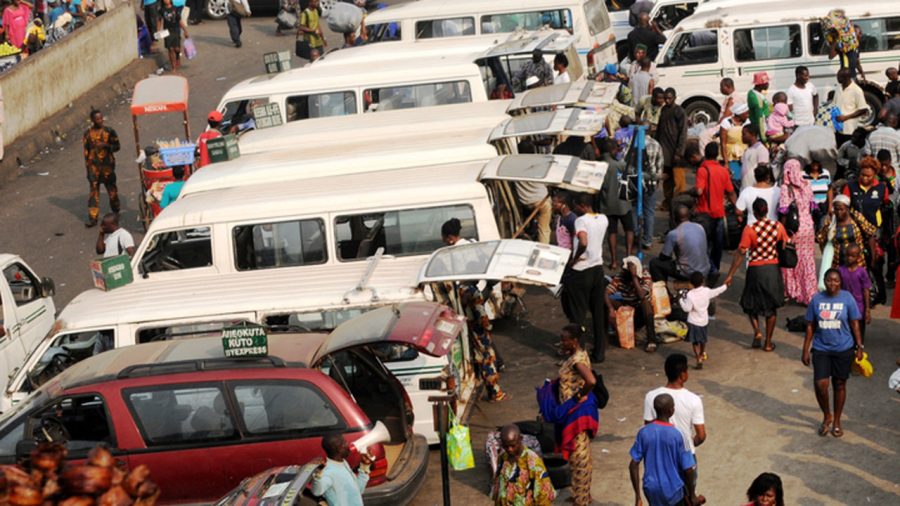TRAVEL

FESTIVE SEASON TRAVEL SAFETY TIPS
As the festive season approaches, ensuring safe travel in Nigeria requires more than just choosing a destination and timing—it necessitates a well-thought-out safety plan.
Given the increase in security concerns and road accidents during the holidays, incorporating safety measures into travel preparations is essential.
By equipping yourself with key safety tips and expert guidance, you can make your holiday journey both memorable and secure.
Earlier, Essential News reported that the Federal Road Safety Corps advised passengers against traveling at night during the festive period due to its associated risks.
Essential News, in this report, outlines key guidelines for safe travel during the festive season:
Research and Plan:
Gather information about your destination, including local laws, customs, and potential safety risks. Utilize reliable travel resources to carefully map out your itinerary.
Stay Updated:
Keep track of local news and events. Subscribe to travel advisories from your government or trusted agencies to stay aware of security concerns or potential risks. Be mindful of any curfews imposed by authorities or traditional leaders.
Get Travel Insurance:
Obtain a comprehensive travel insurance policy that covers medical emergencies, vehicle incidents, trip cancellations, and theft. Ensure it includes coverage for any planned activities.
Choose Safe Accommodations:
Book lodging through reputable sources. Confirm your reservations before arrival and read reviews to ensure the accommodation meets safety standards.
Share Your Itinerary:
Share your travel plans with a trusted friend or family member. Provide them with your itinerary, accommodation details, and emergency contacts in case of unforeseen situations.
Maintain Communication:
Keep your phone fully charged and carry a portable charger. Save important emergency numbers, including local authorities, security agencies, or your country's embassy if traveling abroad.
Choose Safe Transportation:
Opt for reputable transport services. Ensure vehicles are well-maintained, properly licensed, and comply with safety regulations.
Pack Smartly:
Travel light to avoid drawing unnecessary attention. Leave valuables at home and use discreet bags to carry essential items.
Manage Your Money Wisely:
Carry only small amounts of cash and use ATMs in secure locations. Consider using a money belt or hidden pouch to keep valuables safe.
Prioritize Health and Safety:
Ensure you have the necessary vaccinations before traveling. Pack a basic medical kit with essential medications and first-aid supplies.
Eat and Drink Safely:
Stay hydrated with bottled or purified water. Choose hot, well-cooked meals from reputable places to avoid foodborne illnesses.
Respect Local Traditions:
Familiarize yourself with local customs, dress codes, and etiquette to show respect for the culture and avoid unintentional offenses.
Stay Alert in Crowded Places:
Exercise caution in markets, public transportation, and busy areas. Keep your belongings secure and stay mindful of potential pickpockets.
Avoid Scams:
Be aware of common tourist scams. Verify prices and services before making any payments or agreements.
Plan for Emergencies:
Locate emergency exits in your accommodation and familiarize yourself with evacuation procedures. Establish a designated meeting point in case you become separated from your group.
Stick to Designated Tourist Areas:
Stay within well-known tourist spots, especially if you're unfamiliar with the region. Avoid exploring unknown or potentially unsafe areas alone.
Monitor Weather Conditions:
Regularly check weather forecasts, particularly during the rainy season or in areas prone to natural disasters, and adjust your plans accordingly.
Respect Wildlife:
When engaging in wildlife experiences, follow the guidance of trained professionals and maintain a safe distance to protect both yourself and the animals.
Stay Alert and Avoid Excessive Alcohol Consumption:
Limit alcohol intake to maintain awareness of your surroundings and make sound decisions.
Trust Your Instincts:
If something feels off or unsafe, remove yourself from the situation and seek help from authorities or reliable individuals.
Keep Emergency Contacts Handy:
Carry a list of essential contacts, including local emergency services, your country’s embassy or consulate, and your accommodation’s details.
Learn Basic Local Phrases:
Familiarize yourself with key phrases in the local language or use a translation app to facilitate communication in emergencies.
Stay Cautious in Crowded Areas:
Remain vigilant in busy places, such as festivals or markets, to prevent pickpocketing or accidental injuries.
Ensure Online Security:
Use secure Wi-Fi networks and avoid sharing personal information on public networks to prevent hacking or identity theft.
Keep Copies of Important Documents:
Store photocopies of passports, IDs, and travel documents separately from the originals in case of loss or theft.
Choose Secure Accommodations:
Opt for hotels with secure entrances and room safes. Ensure that doors and windows have proper locks.
Exercise Caution in Traffic:
Be mindful when crossing streets, as traffic rules may differ. Always look both ways and use designated crossings.
Respect Local Culture:
Observe cultural norms, religious practices, and dress codes to show respect and avoid misunderstandings.
Practice Good Hygiene:
Wash hands regularly and use hand sanitizer to prevent illness, especially before eating.
Stay Composed in Unexpected Situations:
If faced with delays or emergencies, remain calm, follow official instructions, and seek help patiently.
By following these precautions and staying aware of your surroundings, you can ensure a safer and more enjoyable holiday experience in Nigeria.
"This represents a significant development in our ongoing coverage of current events."— Editorial Board









